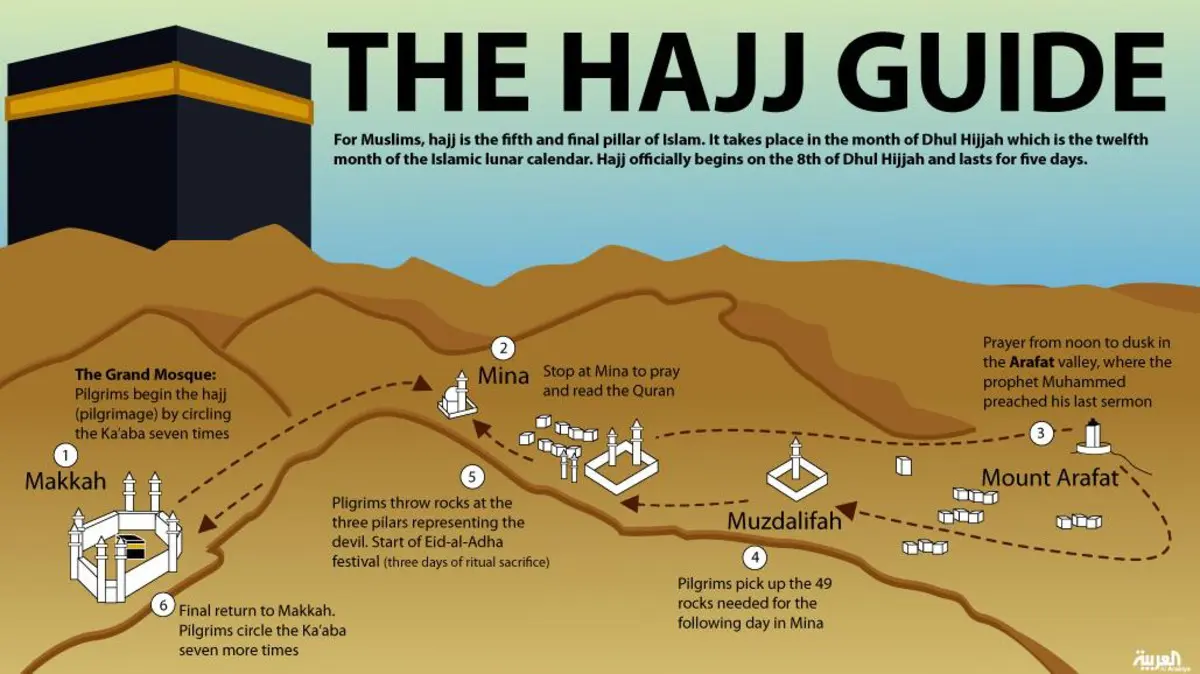Hajj in Islam: Meaning, Importance, and Rituals
Hajj is one of the five pillars of Islam and is considered a sacred duty for every able-bodied Muslim who can afford the journey. It is an annual pilgrimage to the holy city of Makkah in Saudi Arabia and is performed during the Islamic month of Dhul-Hijjah. Hajj is a powerful act of worship that symbolizes unity, submission, and devotion to Allah.
1. The Obligation of Hajj
Hajj is a mandatory act once in a lifetime for Muslims who meet the conditions. Allah says in the Qur’an:
“And Hajj to the House (Kaaba) is a duty that mankind owes to Allah, for those who can find a way there.”
(Qur’an 3:97)
The Prophet Muhammad ﷺ also said:
“Islam is built on five pillars… and Hajj to the House if one is able to do so.”
(Sahih al-Bukhari)
2. Spiritual Significance of Hajj
Hajj is not just a physical journey; it is a spiritual transformation. It reminds Muslims of:
- The Day of Judgment and standing before Allah
- The story of Prophet Ibrahim (Abraham) and his family’s faith
- The equality and unity of all Muslims, regardless of race or status
3. Main Rituals of Hajj
Hajj includes a series of sacred rites performed over several days:
- Ihram: Entering a state of purity and wearing special white clothing
- Tawaf: Circling the Kaaba seven times
- Sa’i: Walking between the hills of Safa and Marwah
- Standing at Arafat (Wuquf): The most important part of Hajj, praying and asking for forgiveness
- Muzdalifah: Collecting pebbles for the next ritual
- Stoning the Jamarat: Throwing stones at symbolic pillars representing Shaytan (Satan)
- Animal sacrifice: In remembrance of Ibrahim’s willingness to sacrifice his son
- Shaving or cutting hair: A symbol of renewal and humility
4. The Reward of Hajj
The Prophet Muhammad ﷺ said:
“Whoever performs Hajj for the sake of Allah and does not commit any obscenity or wrongdoing, he will return as sinless as the day he was born.”
(Sahih al-Bukhari)
This shows the great reward and forgiveness attached to this sacred pilgrimage.
5. Unity and Equality
Hajj is a powerful symbol of Muslim unity. Millions of Muslims from different nations gather in one place, wearing the same clothes, performing the same rituals, and worshiping the same Creator. It removes social, racial, and economic differences, reminding everyone that all humans are equal before Allah.
Conclusion
Hajj is a journey of faith, humility, and renewal. It teaches patience, gratitude, and submission to Allah. For those who perform it sincerely, Hajj is a life-changing experience that brings them closer to their Creator and strengthens their connection to the global Muslim community.

